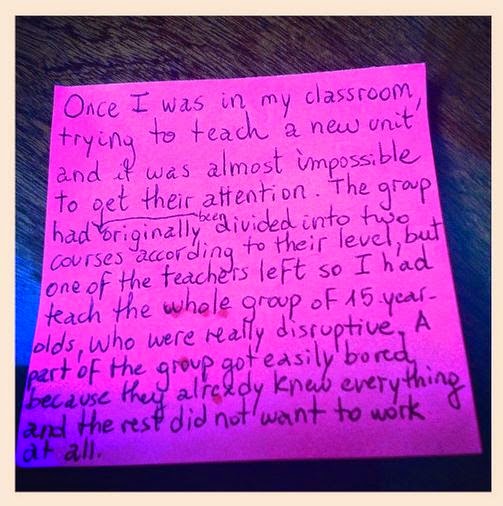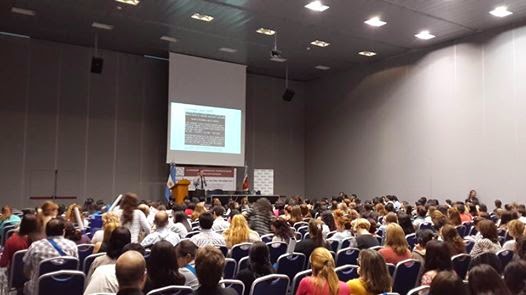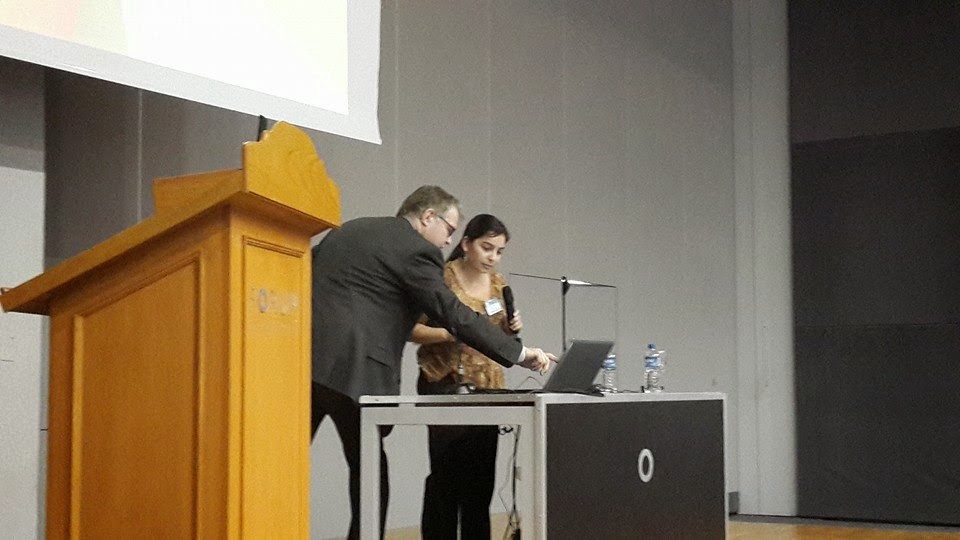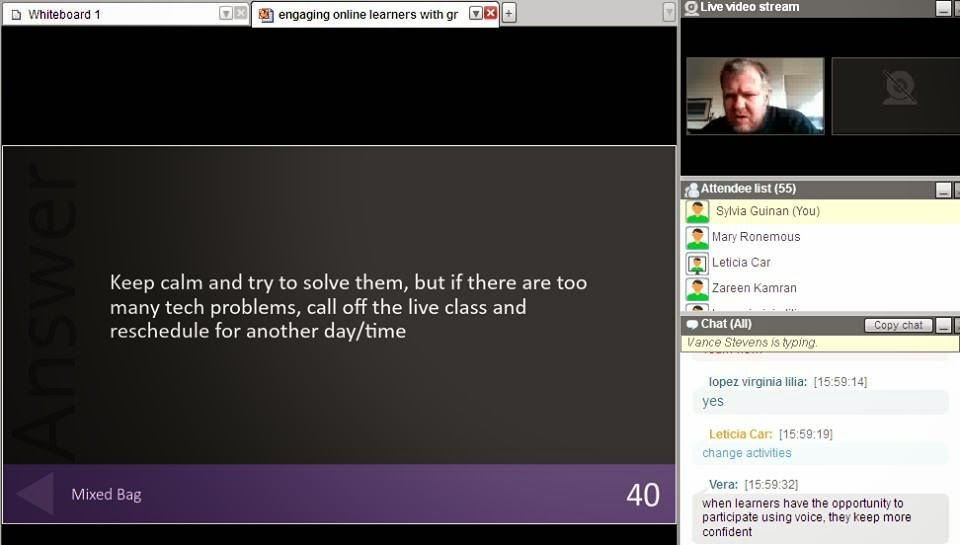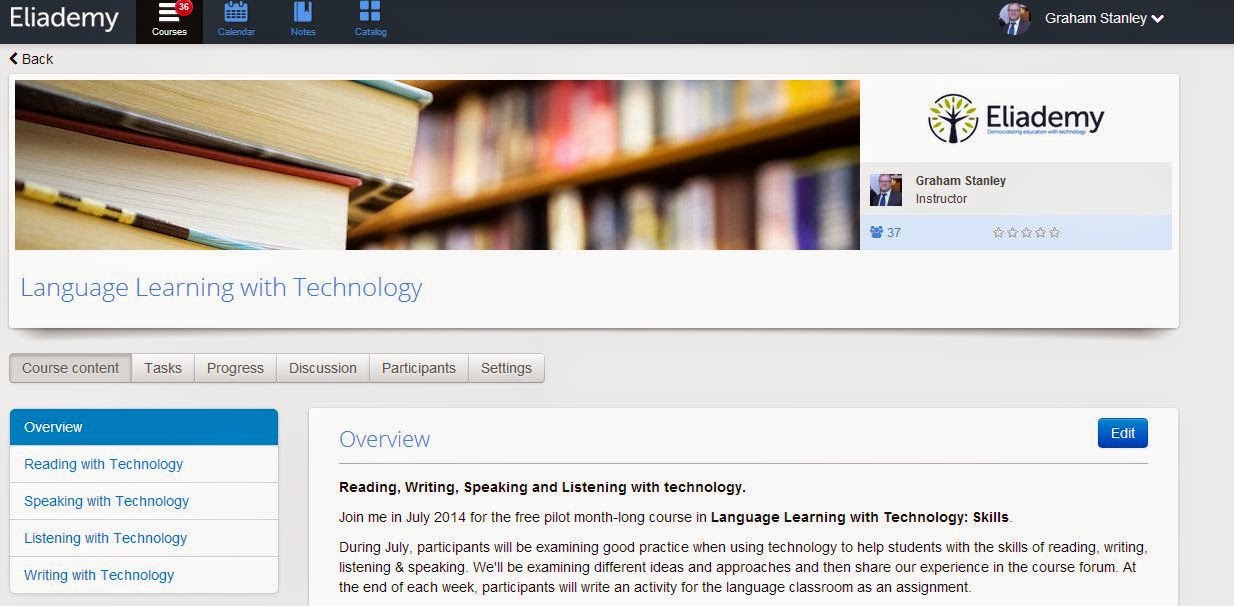Last Friday, thanks to the British Council Buenos Aires , I had the pleasure of leading this workshop with 300 participants at the 39th annual FAAPI conference in Santiago del Estero, Argentina . Photo by Pablo Toledo, British Council Argentina Apart from being surprised at the number of participants, I was encouraged to see so many hands being raised when I asked how many of the teachers in the audience played games themselves. Normally, when I ask this question, less than half the audience put up their hands, but this time more than half of the audience raised their hands. After running through reasons for using games in the language classroom and showing how graphics in games have changed since the early days, I had time to work through two digital games-based activities with the participants ( Droppy and Spent ) and to talk briefly about other games that can be played. Because Jim Scrivener had been one of the plenary speakers, and the focus of his opening
